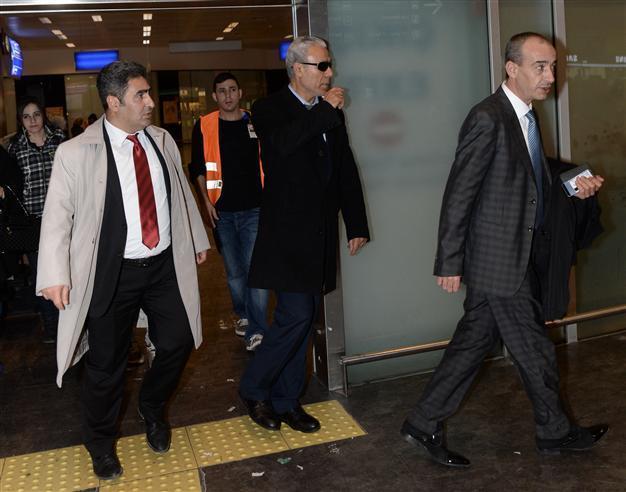Pope’s gunman Ağca kicked out of Italy
ROME – Agence France-Presse

AA Photo
Mehmet Ali Ağca, the Turk who attempted to assassinate John Paul II, was ordered out of Italy on Dec. 29, two days after he paid a surprise visit to the late pope’s tomb.The 56-year-old former right-wing extremist had been in custody since Dec. 27, when police realized he had entered the country without the appropriate visa.
He left the country on Dec. 30 after a magistrate rejected an appeal for him to be detained and questioned in connection with an unresolved investigation into the 1983 disappearance of a 15-year-old schoolgirl, Emanuela Orlandi.
While serving time in an Italian prison for his 1981 assassination attempt on the late Polish pope, Ağca claimed in an interview that Orlandi, a Vatican citizen, had been kidnapped by Bulgarian agents from the same Grey Wolves movement of which he was a member.
He never provided any evidence to support his claim and the case was closed in July 1997.
Ağca’s visit to the Vatican came 31 years to the day after John Paul visited him in prison in Rome to forgive him for the 1981 shooting that nearly killed the leader of the world’s Catholics.
Then 23, he shot the pope twice from close range in St Peter’s Square, one bullet passing through his abdomen and another narrowly missing his heart.
Vatican police agreed to let him lay white roses on the late pope’s tomb but his request for a meeting with current Pope Francis was rebuffed by officials who have made no secret that they regard the former gunman as a slightly deranged publicity seeker.
Ağca, who now professes to be a devout Catholic, served nearly three decades in prisons in Italy and Turkey for the papal assassination attempt and other crimes including the murder of Abdi İpekçi, a Turkish journalist who was editor-in-chief of daily Milliyet when he was gunned down in 1979.
His motive for trying to kill the pope remains unclear. He initially testified that he had acted alone but later claimed the Bulgarian and Soviet secret services had orchestrated the attempted murder because of the Polish pope’s anti-communist stance.
















